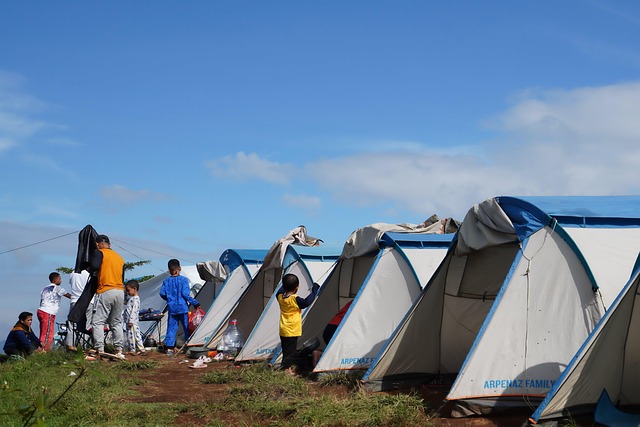Rocky Creek Youth Camp, established in the '70s, faces historical abuse allegations, including physical and sexual assault claims from former campers. These revelations highlight critical safety concerns and long-term mental health impacts on victims. Holding such camps accountable involves adhering to legal standards like the Child Protection Act and Youth Camp Safety Standards, along with ethical practices like transparent management, background checks, training, and encouraging safe reporting environments to prevent future abuse.
“Rocky Creek Youth Camp, a long-standing institution, has faced scrutiny in recent years due to allegations of abuse. This article delves into the historical context of the camp, uncovering the roots of these accusations and their profound impact on former attendees. We explore the legal and ethical frameworks designed to hold such institutions accountable, emphasizing the importance of transparency and justice. By examining Rocky Creek’s past, we aim to shed light on the crucial need for reform in youth camps across the country, especially regarding child safety.”
- Understanding Rocky Creek Youth Camp's Historical Context
- Uncovering Allegations of Abuse and Their Impact
- Holding Camps Accountable: Legal and Ethical Frameworks
Understanding Rocky Creek Youth Camp's Historical Context

Rocky Creek Youth Camp, established in the early 1970s, has a complex historical context deeply intertwined with its mission to serve and educate young minds. Initially, it began as a small, non-profit organization aiming to provide outdoor education and summer retreats for underprivileged youth. Over time, however, allegations of abuse emerged, casting a shadow over the camp’s reputation. These claims, centered around physical and emotional misconduct by staff members, sparked significant public concern and led to thorough investigations.
The historical context of Rocky Creek Youth Camp is marked by both its aspirations and controversies. The camp’s founders envisioned a safe haven where children could explore nature, develop life skills, and foster personal growth. However, the dark underbelly of alleged abuse has prompted systemic changes and increased scrutiny. Understanding this dichotomy is crucial when evaluating the camp’s current efforts to rehabilitate its image and ensure a healthier environment for its participants.
Uncovering Allegations of Abuse and Their Impact

Uncovering allegations of abuse at Rocky Creek Youth Camp has brought to light a dark and disturbing reality. Many former campers have come forward with stories of physical, emotional, and sexual assault, detailing experiences that left them traumatized and seeking justice. These revelations have shaken the community and raised urgent questions about the camp’s operations and safety protocols.
The impact of such abuse is profound and long-lasting. Victims often struggle with mental health issues, flashbacks, and a sense of violation. The trust between campers and authorities has been severely eroded, making it challenging for survivors to speak out and seek help in the future. Holding Rocky Creek Youth Camp accountable is not just about justice; it’s about ensuring such atrocities never occur again and providing support to those who have suffered immense pain.
Holding Camps Accountable: Legal and Ethical Frameworks

Holding camps like Rocky Creek Youth Camp accountable is a multifaceted process, grounded in a robust legal and ethical framework. At its core, this involves ensuring that organizations operating youth camps adhere to stringent regulations aimed at safeguarding campers from potential harm, including abuse. Laws such as the Child Protection Act and the Youth Camp Safety Standards mandate regular inspections, clear reporting mechanisms, and robust complaint handling procedures.
Ethically, accountability requires a culture of transparency and responsibility within camp management. This includes implementing thorough background checks for staff, providing adequate training on child protection and first aid, and fostering an environment where campers feel comfortable reporting any incidents of mistreatment or neglect. By upholding these standards, Rocky Creek Youth Camp can foster trust with its community and ensure the well-being of every young person in its care, preventing potential instances of abuse from going unnoticed or unaddressed.
In light of the allegations surrounding Rocky Creek Youth Camp, it is imperative that we hold such institutions accountable for their actions. By understanding the historical context and the profound impact of abuse, we can navigate the legal and ethical frameworks to ensure justice and healing for those affected. The time has come to shine a light on these issues and revolutionize camp safety standards, creating a testament to the power of accountability and prevention.
